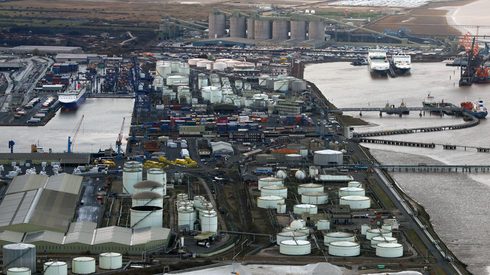Analysis of the pledges made at the Cop28 meeting on climate change will only meet 30% of the emissions gap that needs to be bridged if the world is to meet a target of limiting global warming to 1.5 degrees Celsius, the International Energy Agency (IEA) has warned.
The pledges on three key areas – use of renewable fuels, improving energy efficiency and reduction of methane release and flaring – would only contribute around a third of the reductions needed if realized in full, the agency warned.
“While the pledges are positive steps forward in tackling the energy sector’s greenhouse gas emissions, they would not be nearly enough to move the world onto a path to reaching international climate targets,” the agency said in a press statement.
The analysis spanned the period up to December 8, when 130 countries had signed up to a pledge to triple global renewable power capacity by 2030, while also doubling the annual rate of energy efficiency improvements annually over the same time frame.
Collectively, the 130 countries contribute 56% of global gross domestic product (GDP), account for 37% of global energy demand and contribute 40% of carbon dioxide emissions globally.
50 companies have signed up to the oil and gas charter
The report also appraised the 50 companies that have signed up to the Oil and Gas Decarbonization Charter, committing to cutting methane emissions to zero – the gas being one of the single biggest contributors to climate change – and eliminate routine flaring.
Again, the 50 companies at the heart of the agreement account for 40% of global oil production and 35% of combined oil and gas output.
Despite the warning, reaching full compliance with the pledges could remove emissions of around 4 gigatonnes of carbon dioxide equivalent by 2030.
At the beginning of the Cop28 meeting, held this year in Dubai, the IEA laid out five key actions that would allow the world to meet a target of limiting global warming to 1.5 degrees Celsius.
On top of the tripling of renewable power, doubling the rate of fuel efficiency improvements and cutting methane emissions by 75% from the fossil fuel sector, the agency also called for improved financing to triple clean energy investment in emerging and developing economies.
The fifth pillar was the commitment to a managed decline in the use of fossil fuels including a call to ban new approvals for unabated coal-fired power stations.
This year’s United Nations Climate Change Conference is the 28th such gathering and has been dogged with controversies around allegations that oil and gas producing nations – particularly those in the Middle East – were using the conference to sign fossil fuel supply deals.
Earlier during the meeting, Cop28 president, Sultan Ahmed Al Jaber, was forced to clarify comments that there was ‘no science out there’ to support the claim that the phase out of fossil fuels would help limit climate warming to 1.5 degrees C.





